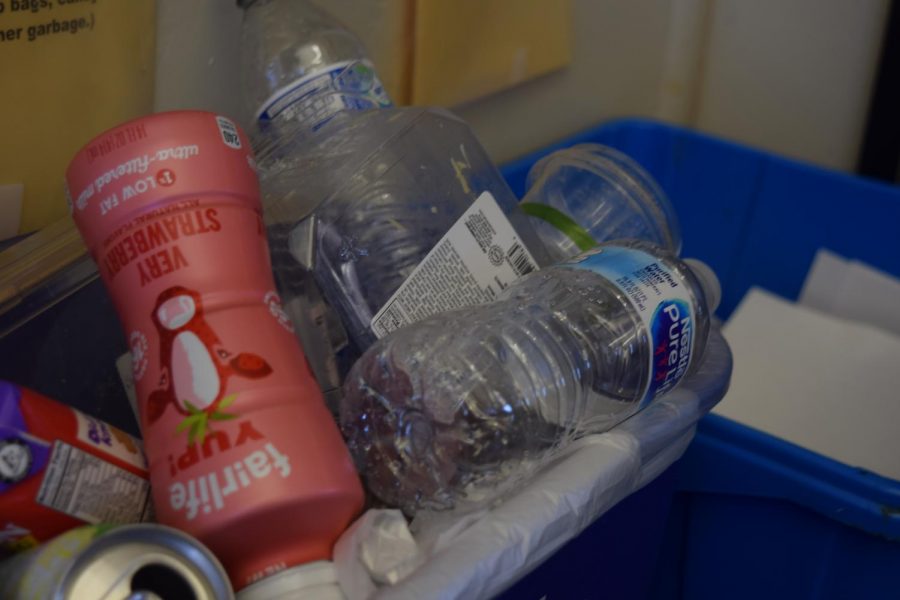Riordan revisits recycling requirements
Recycling can not only benefit the environment, but lower bills as well.
March 29, 2019
Today, in a time rife with newsabout an increasingly decrepit world, recycling has become less of a suggestion and more of an expectation.
It seems as though everywhere one looks, there’s a bright blue bin with a triangle of arrows. They’re outside of every home, on every street corner, and pretty much every commercial building.
Riordan alone has about 50 recycling bins. With such a high number of recyclable waste receptacles, the expectation that Riordan students and staff become active recyclers is high, but that may not be the case.
According to the Finance Office,Riordan’s monthly trash bill is about $5,539.52. That translates to about $66,474.24 every school year.
John Ahlbach, teacher and local recycling advocate, believes the cost stems in part from the school’s problems with recycling and composting.
He said, “If we doubled our compost pick-ups and cut our trash pick-ups in half, we could save $500 a month and help the environment. My estimate is at least 80 percent of what goes out of Riordan as ‘trash’ is compostable.”
This decrease in costs would not be without consequences, however, as Ahlbach continued,“This would only work, however,if everyone was conscientious and there was a committed group of people (a Green Team) to make sure the trash was sorted properly, including at events like basketball games.”
In order to decrease the refuse bill, the school would need quite a bit of effort. San Francisco city ordinance requires that recycling,compost, and landfill be properly sorted before making a “green” pickup, or one that involves recycling or compost. If the trash is sorted incorrectly, then the city might not take it.
In the Feb. 14 edition of The Broadview, Convent of the Sacred Heart’s school newspaper, a front-page article details that school’s struggle with recycling. According to the article, the school has been fined “between five and nine times each month because of management.”
The dilemma of saving money or saving the Earth should not be at cross purposes, some contend,but they are. The amount of effort needed to meet the requirements of the city and the cost that comes with it could result in a loss of money for the school.
President Andrew Currier discovered evidence of recycling gone awry, stating that, “We talked to the folks at Marin Catholic, and they were promised lower rates for composting and their bill actually went up.”
Although he is hesitant to start any new waste program, Currier does acknowledge the potential good of composting and other ways in which Riordan can reduce its enormous trash bill, saying that, “We should be composting…
We are currently looking at reducing our bill, and I think composting could help that. We’re also looking at other refuse companies… we can talk to our facilities director about ways to improve the recycling.”
Science Department Chair Colleen O’Rourke circulated a “Recycle for Lent” calendar published by the Anglican Environmental Network, which suggests ways to keep the Lenten Season green each of the 40 days. The calendar can be found at RCrusaderNews.com.
In efforts to reduce the cost of Riordan’s waste, the administration can only do so much, as a large part of the burden will fall on the students to dispose of their waste properly. Putting trash into the appropriate bin and trying to reuse materials or reduce their use is necessary in order to keep Riordan green.
In order to do this, students must be taught how to do so. It’s not easy to know what goes where.For example, everything provided by the school’s food provider, Epicurean, is compostable. Not just the food, but also the forks, napkins, plates, and cups.
With benefits like these, it’s pretty clear that students need to be taught what to do.
President Currier said, “It needs to be an ongoing conversation through science class and school wide efforts to pull together as a community.”


